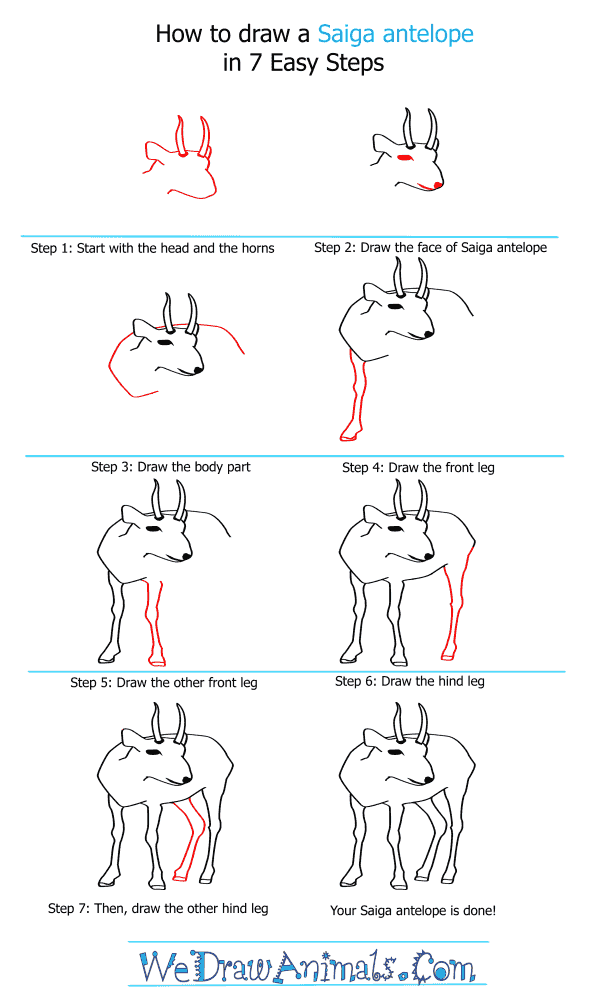In this quick tutorial you'll learn how to draw a Saiga Antelope in 7 easy steps - great for kids and novice artists.
The images above represent how your finished drawing is going to look and the steps involved.
Below are the individual steps - you can click on each one for a High Resolution printable PDF version.
At the bottom you can read some interesting facts about the Saiga Antelope.
Make sure you also check out any of the hundreds of drawing tutorials grouped by category.
How to Draw a Saiga Antelope - Step-by-Step Tutorial
Step 1: Start by drawing the outline of the head, ears, and horns
Step 2: Draw the eyes, nose, and mouth. Make an almond shape for the eye, a line for the mouth, and a dot for the nose
Step 3: Draw the body with one curved line that goes around the head
Step 4: Draw the front leg and hoof. The hoof is separtaed by a vertical line in the leg and the leg is made with bumpy lines
Step 5: Draw the other front leg and hoof under the head in the same way
Step 6: Now, draw a back leg and hoof similar to the front legs. Connect the back leg to the body
Step 7: To finish, draw the other back leg and hoof, making this one bent
Interesting Facts about the SAIGA ANTELOPE
A Saiga Antelope is a member of the elephant family and the scientific term for them is Saiga tatarica. This animal lives in a few places of northern Asia. They have a long nose like an elephant, except less pronounced, which filters herding dust and frigid air. When the Ice Age created a land bridge from Russia to Alaska, these creatures migrated from North America.
Did you know?
- They reach up to 2.5 feet tall.
- These weigh as much as 140 pounds.
- It can live to be 10 years old.
- This animal has horns that are used in Chinese medicine.
- They have a population that has decreased about 95% in only 15 years.
- These animals have horns that are worth $150 each.
- It has males that compete for breeding, where the winner leads a group of up to 50 females.
This type of antelope eats grass and plants that are poisonous to other animals. It covers large areas of distance each day, swimming large rivers when necessary, but avoiding mountainous areas. They are almost extinct, partly since World Wildlife Fund sponsored the hunting of them so that poachers would not kill the endangered rhinoceros.








